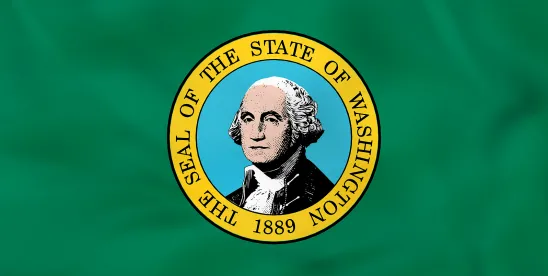On July 20, 2025, the public comment period will close on Washington state’s most recent round of proposed regulations affecting 12 categories of “consumer products” with intentionally added per- and polyfluoroalkyl substances (PFAS). If the proposed regulations are adopted, the manufacture, sale, or distribution of three categories of products— “apparel and accessories,” “cleaning products,” and “automotive washes”—would be barred in Washington state beginning January 1, 2027, if they contain intentionally added PFAS. The sales and distribution restriction would not apply to products manufactured before January 1, 2027. Meanwhile, beginning January 31, 2027, reporting would be required for the following nine product categories if they contain intentionally added PFAS and are manufactured after 2025: “apparel intended for extreme and extended use,” footwear, “gear for recreation and travel,” automotive waxes, cookware and kitchen supplies, firefighting personal protective equipment, floor waxes and polishes, hard surface sealers, and ski waxes.
Washington already restricts the manufacture, sale, and distribution of aftermarket stain- and water-resistance treatments and carpets and rugs that contain intentionally added PFAS. Starting next year, the state will also restrict the manufacture, sale, and distribution of leather and textile furniture and furnishings intended for indoor use if they contain intentionally added PFAS. Annual reporting started January 31, 2025, for leather and textile furniture and furnishings intended for outdoor use that contain intentionally added PFAS. (Meanwhile, under Washington’s Children’s Safe Products Reporting Rule, manufacturers are currently required to report annually on the presence of intentionally added (in any detectable amount) and/or contaminant (above 100 ppm) levels of any substance from the state’s list of Chemicals of High Concern to Children. That list includes two PFAS—perfluorooctanoic acid (PFOA) and perfluorooctane sulfonic acid (PFOS).)
Washington’s Toxic Pollution Law provides a broad definition for “consumer products,” allowing the state’s Department of Ecology (Ecology) to develop regulations to restrict chemicals, including PFAS, in “any item, including any component parts and packaging, sold for residential or commercial use.” However, Ecology is required under the Toxic Pollution Law to identify specific chemicals and product categories for regulation in five-year cycles. Ecology already identified nine additional chemicals and products for future proposed rulemakings and expects to release another round of draft regulatory actions and invite formal public comment on those identified chemicals and products in late 2026.
The most recent proposed regulations feature some definitional nuances that may be important in assessing regulatory obligations. For example, “automotive washes” are in their own category, separate from a broader category of “cleaning products,” which include “all-purpose cleaners, disinfectants, cleaners for glass, bathrooms, dishes, and tiles.” “Industrial” cleaning products are excluded from the “cleaning products” category at present. Meanwhile, four types of apparel and accessories (“apparel intended for extreme and extended use,” footwear, “gear for recreation and travel,” and firefighting personal protective equipment) will be subject to reporting by January 31, 2027, under the proposal, rather than the proposed restrictions on manufacture, sale, and distribution applicable to other apparel and accessories after January 1, 2027. Products subject to the restrictions on apparel and accessories include, “but are not limited to, costumes, dresses, formal wear, gloves, hats, jackets, leggings, pants, scarves, shirts, skirts, socks, swimwear, and underwear (including reusable underwear for incontinence and reusable period underwear).”
As is the case under existing regulations, the proposed regulations would apply to covered products with “intentionally added” PFAS; however, this does not necessarily mean that products with only incidental PFAS are completely out of scope. An “intentionally added” chemical is defined under the existing regulations as one that “serves an intended function in the final product or in the manufacturing of the product or part of the product.” Chemicals present due to the use of recycled materials are expressly excluded from being considered “intentionally added.” While this may appear to provide some relief for companies that use recycled materials, Washington’s current and proposed regulations make clear that for each restricted category of products “Ecology presumes the detection of total fluorine indicates the intentional addition of PFAS.” Manufacturers are allowed to rebut this presumption by submitting a statement with “credible evidence” that PFAS was not intentionally added, but this creates a potentially heavy burden, as PFAS is broadly defined as a “class of fluorinated organic chemicals containing at least one fully fluorinated carbon atom.” This covers thousands of chemicals. Requiring businesses to prove that PFAS was not intentionally added, without also adopting a de minimis exemption, may make Washington’s proposed regulations among the most restrictive.
The public can continue to raise concerns with Washington’s existing and proposed PFAS regulations (including analysis documents, available here) until July 20, 2025. After the public comment period closes, Ecology must adopt a final rule before December 1, 2025.





 />i
/>i
